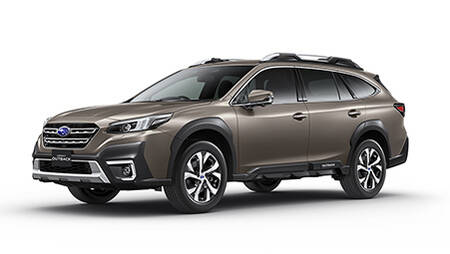May 25, 2022
Tokyo, May 25, 2022 – Subaru Corporation today announced that the Outback (Japan model) won the Best Award 2021 in Japan New Car Assessment Program (JNCAP) conducted by the Ministry of Land, Infrastructure, Transport and Tourism (MLIT) and the National Agency for Automotive Safety and Victim’s Aid (NASVA). Following the 2020 Best Award won by the Levorg last year, Subaru has won the highest award from JNCAP for 2 consecutive years.
In JNCAP 2021, the Five Star Award is given to vehicles equipped with automatic accident emergency call system which have received the ‘A rank’ evaluation for both collision safety performance and preventive safety performance. The Outback has received the “A rank” in the respective safety performance categories and with its Advanced Automatic Collision Notification system available under Subaru STARLINK connected services. Among all the Five Star awarded vehicles, the Outback has earned the highest overall evaluation points (185.02 out of 190 points) and it has received the JNCAP Best Award 2021.
In the area of collision safety performance, the Outback has adopted the combination of the Subaru Global Platform and a full inner frame construction, which achieves higher rigidity and crash absorption compared to the previous model. Moreover, a second load path structure has been adopted with the aim of reducing damage not only to the occupants of the own vehicle but also to those of the collision partner in the event of a crash. The Outback protects driver and passengers with eight standard airbags, and pedestrian protection airbag is also a standard equipment to reduce the impact on pedestrian.
In the area of preventive safety performance, the new generation EyeSight with wider viewing angle is a standard equipment on all models of the Outback, in combination with the newly added electric brake booster which improve responsiveness of braking assist to support collision avoidance at intersections in various situations.
Pursuing the goal of “delivering happiness to all,” Subaru will continue to enhance safety through its primary, driving, passive, preventive, and newly-added connected safety technologies under its “all-around safety” principle, which underpins enjoyment and peace of mind for all drivers and passengers. Through these efforts, we aim to achieve zero fatal road accidents*1 by 2030.

